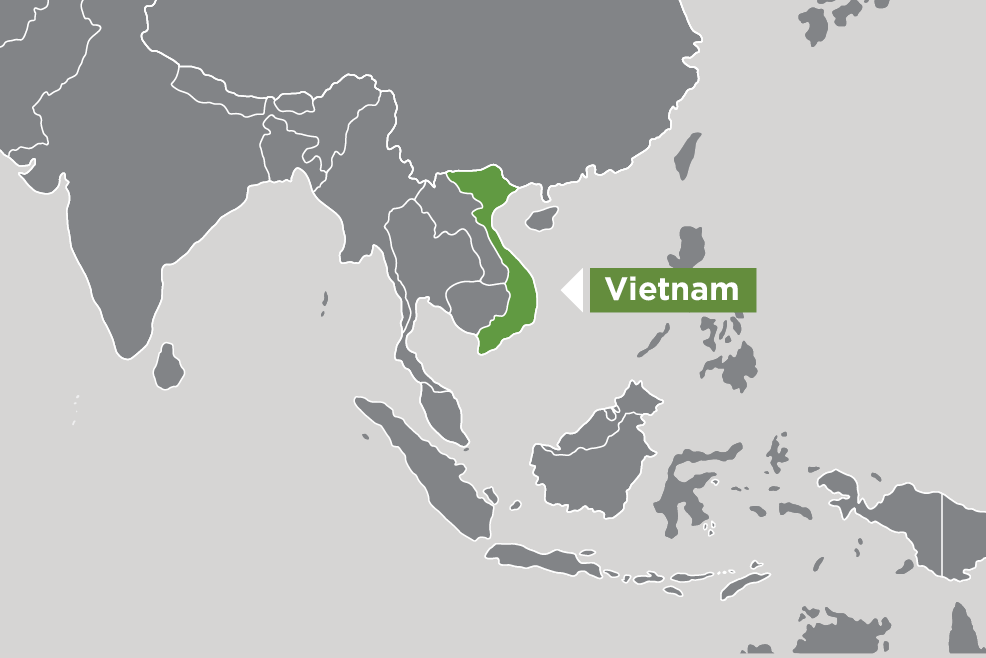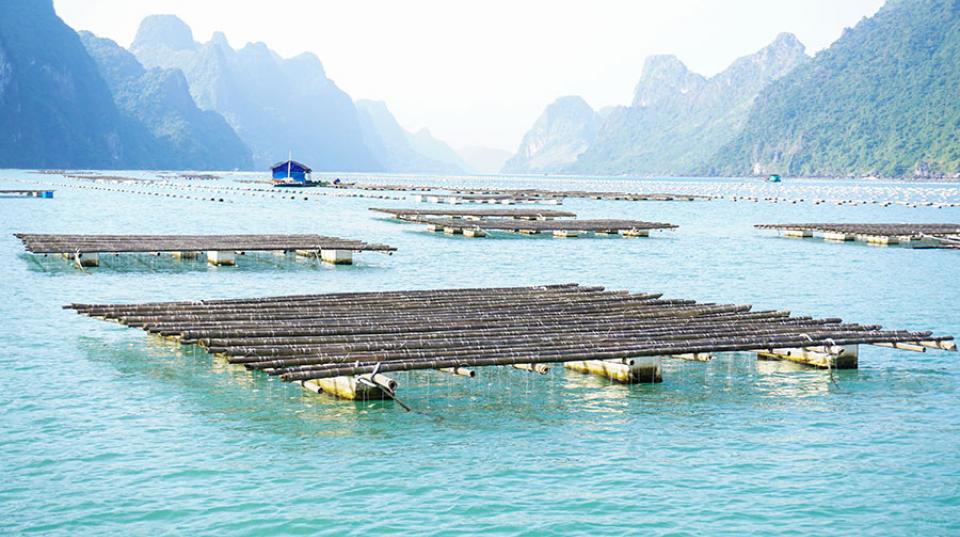Overview
This project aims to assess the potential for Portuguese oyster aquaculture to contribute to carbon sequestration in Vietnam and explore opportunities to reduce climate change impacts by shell recycling and value adding, including through the use of carbon crediting mechanisms.
Bivalve aquaculture has proven highly successful in Vietnam. Species are easy to farm and require low-level skills, training, and technology to produce healthy and conditioned animals that are nutrient-packed and ready for the local markets and tourists. Previous ACIAR investment in Vietnam has supported the establishment and rapid growth of the edible oyster industry, which is now thriving, and demonstrates just how important this industry now is as a reliable and nutrient-packed food source.
Marine bivalves are molluscs that have two outer shells (valves) such as mussels, clams and oysters. These sequester carbon in their shells as calcium carbonate and may be used to mitigate the effects of climate change. Although the role of bivalves in the carbon cycle has attracted interest, the carbon footprint remains unclear. There exists an opportunity to rapidly advance and sophisticate oyster aquaculture in Vietnam by exploring the full economic potential that has environmental, social, and sustainability benefits.
This project proposes to examine the role of Portuguese oyster (Crassostrea angulata) aquaculture in the carbon cycle and rates of carbon sequestration in northern Vietnam. By doing so, the potential value for oyster carbon farming and contribution to carbon off-set schemes can be fully evaluated. In addition, this SRA will work closely with communities and local businesses to evaluate the current and potential supply chain and build capacity around product development that utilises residual carbon-trapping oyster shells and other value-adding by-products. This proposal will be tailored to capture the unexplored socio-economic gains that are beneficial for rural and regional communities of Vietnam, and the cultural significance of this valuable marine industry.
Project outcomes
- Reviewing the status and potential of oyster aquaculture in northern Vietnam.
- Mapping the carbon footprint of oyster aquaculture.
- Applying a monetary value to sequestration and assess the feasibility for carbon offset schemes.
- Assessing the potential to reduce the environmental impact and find ways to permit shell recycling and value adding.




